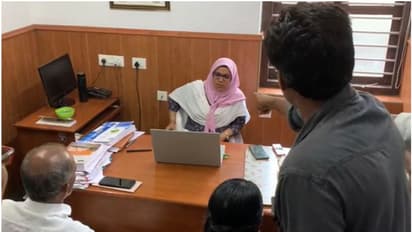Pakistan's University of Balochistan plunges into chaos as employees stage protest over unpaid salaries

Synopsis
University of Balochistan employees, students, and faculty stage a protest in Quetta demanding overdue salaries and criticizing government inaction. The protest underscores broader concerns about financial stability and administrative accountability in Pakistan's education sector.
The Joint Action Committee (JAC) of the University of Balochistan (UOB) organized a protest in Quetta, demanding three months of overdue salaries and a 35% salary increase promised in the previous year's education budget.
The protest, reported by The Balochistan Post, included UOB students, faculty, and staff who gathered at the Quetta Press Club to draw attention to UOB's financial distress. Led by prominent figures like Professor Kaleem Ullah Barech, APLF Chairman Shah Ali Bugti, and others, the protest march took place across several key areas of Quetta, including the Civil Secretariat, Hockey Chowk, Commissioner’s Office, Kacheri Chowk, Jinnah Road, and Manan Chowk.
The demonstrators concluded their march at the Quetta Press Club, urging immediate action to resolve UOB's financial crisis. Speakers at the protest expressed disappointment that UOB employees had to protest for wages and pensions, especially during Ramadan.
They criticized the Balochistan and Federal governments and the Higher Education Commission of Pakistan for not addressing UOB's financial issues adequately. The protesters also condemned the former UOB vice chancellor's appointment, labeling it as illegal and detrimental to the university's welfare.
They urged vice chancellors and officials from other universities to advocate for substantial financial support from the government. Earlier, the committee announced plans for a protest camp at UOB's main gate, followed by a rally on Saryab Road to demand full salary payments.
They invited media, educators, political parties, student groups, legal professionals, and civil society members to support and amplify their cause. The protest is aimed to address broader concerns about financial stability, administrative accountability, and the challenges faced by educational institutions in Pakistan.
Check the Breaking News Today and Latest News from across India and around the world. Stay updated with the latest World News and global developments from politics to economy and current affairs. Get in-depth coverage of China News, Europe News, Pakistan News, and South Asia News, along with top headlines from the UK and US. Follow expert analysis, international trends, and breaking updates from around the globe. Download the Asianet News Official App from the Android Play Store and iPhone App Store for accurate and timely news updates anytime, anywhere.